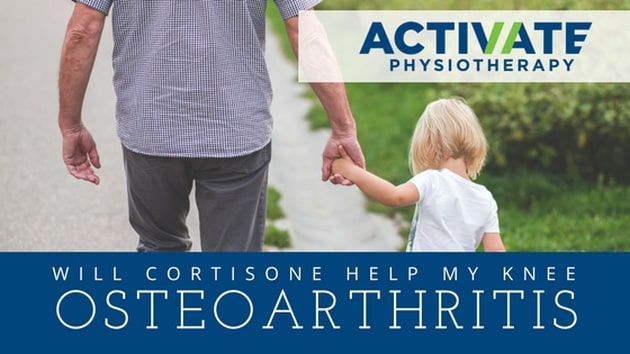The Journal of the American Medical Association (JAMA) has recently published findings from a study showing injection of corticosteroids or cortisone into the knee of patients with osteoarthritis was not beneficial for pain management and may worsen the degeneration of the cartilage [1].
Cortisone injections are sometimes recommended as a strategy for managing pain. Cortisone is a powerful anti-inflammatory which can be injected into joints and tissues to provide rapid decrease in local inflammation.
Osteoarthritis is a type of arthritis that affects the whole joint including bone, cartilage, ligaments and muscles. Osteoarthritis commonly affects the larger weight-bearing joints like the knees and hips and tends to affect people over the age of 40years and those who have had previous injuries to their joints [2].
The effects of osteoarthritis may include:
- inflammation of the tissue around a joint
- damage to joint cartilage – this is the protective cushion on the ends of your bones which allows a joint to move smoothly
- bony spurs growing around the edge of a joint
- deterioration of ligaments (the tough bands that hold your joint together) and tendons (cords that attach muscles to bones).
In the JAMA study the patients with knee arthritis were injected with cortisone every 3months. The doctors then looked at the impact on pain and cartilage deterioration levels compared with patients whose joints were injected with saline (a neutral solution similar to the body’s own fluids). Each year they performed MRI scans and recorded the patient’s rating of pain.
They found the patients who had cortisone injections had a far greater loss of joint cartilage than those who did not have cortisone. The 2 groups of patients had no difference in their rating of pain. Watch the video below for a summary of these findings.
Findings do not support corticosteroid injections for knee osteoarthritis. Watch the video, read the study. http://ja.ma/2rojwJp
Posted by JAMA on Tuesday, May 16, 2017
So what does this mean for me?
If you suffer from osteoarthritis of the knees, this study shows you won’t benefit from cortisone injections. They will not help to ease your pain and will likely lead to a worsening of your condition.
So what can I do?
- Learn ways to manage pain.
- Stay active. Exercise is strongly recommended for people with OA. It keeps your joints and muscles healthy and flexible and prevents other health problems. You may find it useful to see a physiotherapist or exercise physiologist for advice.
- Have a healthy diet. There is no diet that will cure OA, but a diet aimed at maintaining an ideal body weight is recommended.
- Balance your life. Learn about equipment that make daily tasks easier and how to balance rest and activity.
- Take care of your emotional health.
[1] McAlindon, T.E., LaValley, M.P., Harvey, W.F. (2017) Effect of Intra-articular Triamcinolone vs Saline on Knee Cartilage Volume and Pain in Patients With Knee Osteoarthritis. A Randomized Clinical Trial.
[2] Arthritis Australia. Arthritis Information Sheet: Osteoarthritis

